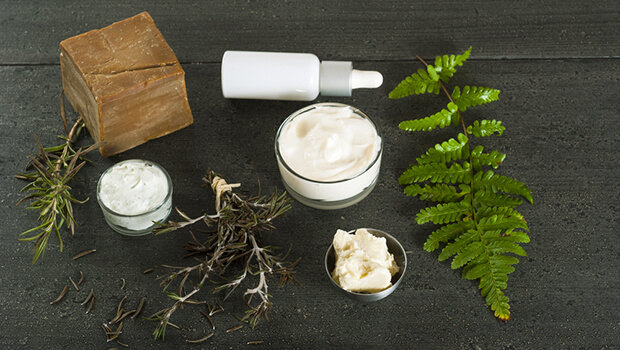
The word is out. Synthetic surfactants, such as sodium lauryl sulfate, aren’t good for your skin or your health. As the name indicates, surfactants lower the surface tension between two liquids or between a liquid and a solid. This gives your soaps, shampoos, and detergents the feel we expect. However, about 15,000 studies mention the toxicity of sodium lauryl sulfate. And, for some more sensitive people it serves as an outright allergen. So more and more shampoo manufacturers are putting “no SOIDUM LAURYL SULFATE” on their bottles. But there are alternatives.
You may not have heard of biosurfactants, but you need to know about them. According to a recent review study, they are one of the latest trends in the cosmetic and skincare industry. That’s because more and more people are (wisely) searching out products made with natural ingredients. And biosurfactant compounds typically work just as well as their chemically-based counterparts, but without causing environmental harm.
Moreover, biosurfactants are typically biodegradable and don't have the negative health effects chemicals can produce. In fact, some may even have "prebiotic" characteristics, making them not just less dangerous than chemical products, but actually more beneficial.
How stress can harm your skin
Soap will dry your skin. This highly concentrated cleanser contains an exclusive blend of Amino Acids, Sunflower Oil, Coconut Oil and 10 more ingredients that remove dirt, oil and even stubborn eye makeup without drying. Plus, you'll be restoring natural moisture, too.
Learn More Now
If you follow fashion at all, you may know that trends (even some awful ones) tend to be cyclical. And it looks like skincare trends are no different — except that instead of bringing back the '80s, we're bringing back the everyday skincare ingredients of ancient civilizations. The legendary beauty Cleopatra likely cleansed her skin using a biosurfactant, such as white willow bark (the original plant that aspirin originated from). We now know that this biosurfactant has anti-inflammatory, antibacterial, and prebiotic properties, and is a gentle exfoliator.
Cleopatra didn't need trendy scientific studies to convince her to use this ingredient. All she and her fellow Egyptians knew was that it worked to help them maintain the clean, clear, beautiful skin they prized so much. It's good to have studies confirm what we already know. It will help us convince our contemporaries of its efficacy. But even if we didn't know why it's so effective, like Cleopatra, we could still enjoy its benefits. We've included white willow bark in the Système 41
Purifying Cleanser because it works. Ancient civilizations already managed to create the wheel; we don't need to reinvent it!
To your health, naturally,

Janet Zand
Source:
Vecino X, Cruz JM, Moldes AB, Rodrigues LR. “Biosurfactants in cosmetic formulations: trends and challenges.” Crit Rev Biotechnol. 2017 Jan 12:1-16. doi: 10.1080/07388551.2016.1269053. [Epub ahead of print]